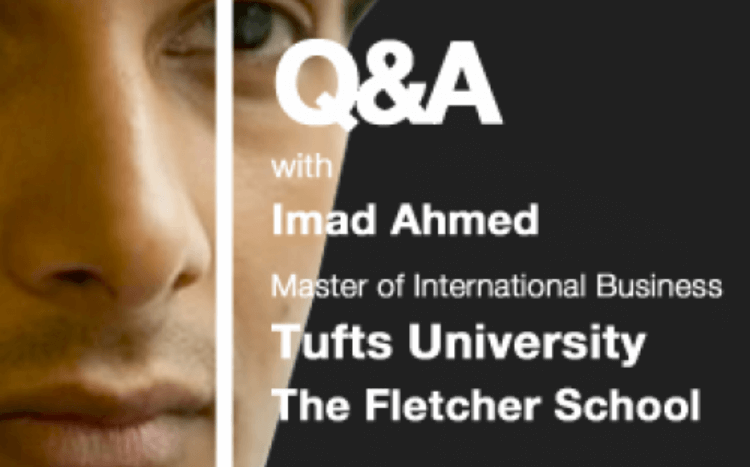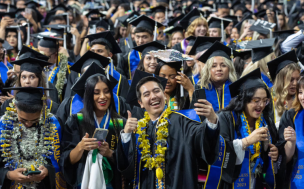Until I was 18, I grew up in eight towns, villages and cities across England. We would take holidays to Pakistan, and surrounding countries like the UAE and Sri Lanka, or to California. When we returned to England, we often found ourselves in a new home due to my father’s frequent transfers.
You studied your undergrad on the West Coast at Berkeley. What made you switch to the East Coast for your Masters?
I wanted to be part of a tightly-knit but global network. Small schools on the East Coast in general were better at offering that, in particular Fletcher. I was impressed by how often I would come across the name of the relatively small graduate programme as I read the biographies of bank chairmen and ministers.
What most attracted you to the MIB at Fletcher?
It fused my interests in international and business affairs. I guessed, correctly, that much of my cohort would regard business as a means to development, and Fletcher as something greater than a launch pad into simply corporate careers. Fletcher encourages you not to shy away from believing that you can be part of something that shifts paradigms.
You've had a gloriously varied career so far (writer, campaigner, school governor, business manager etc) - how would you describe your professional experience to date?
My professional career has been driven by the motivation to achieve social justice. My work as a journalist in Pakistan revised my understanding of social justice: when people are unable to make ends meet, so-called “rights” and judicial independence are the last things on their minds. And so I left Pakistan, endeavouring to contribute to Pakistan’s economy.
Together with Fletcher’s network and financial training, I was able to leverage my professional experience as a journalist, as an editor and as a business manager this summer working for a private equity fund which invests growth capital in frontier markets, such as Pakistan. Besides financial modeling, I developed valuable investor and deal origination relationships, scripted a corporate video and composed a press release which was published in Reuters and the Financial Times.
What's the most interesting thing you've discovered during your time at Fletcher?
How small the world is among well-travelled, fun, energetic people motivated to make a positive difference. I think I had common friends with some 20 Fletcher students coming into the programme, spread across three continents. A year into the programme, my classmates have introduced me to a whole host of new friends.
Any particular course/ class on the MIB that's stood out?
My finance courses have opened up a new career path. A consulting project for OPIC, a nation branding paper and a paper for International Political Economy have helped me publish opinion editorials with The Boston Globe and Pakistan’s Friday Times.
But the class that stands out is Professor Rick Thoman’s Managing the Global Corporation. Having managed Nabisco and American Express as a top five executive, and IBM and Xerox as CFO and CEO, he’s pretty well-qualified to teach the course. It’s been fascinating and inspiring to listen to Professor Thoman, an alumnus of the class of 1971, talk about his business and policy career, about mergers and acquisitions, about the relations between boards of directors and management, and talk about Fortune 100 CEOs as well as ministers whom he is acquainted with.
What do you hope to do after you graduate from the MIB?
I hope to be financing exciting businesses in frontier markets that will ultimately lead to job creation in countries like Pakistan, and to continue to influence social and business policy through my writing.
RECAPTHA :
83
9a
2e
9d







